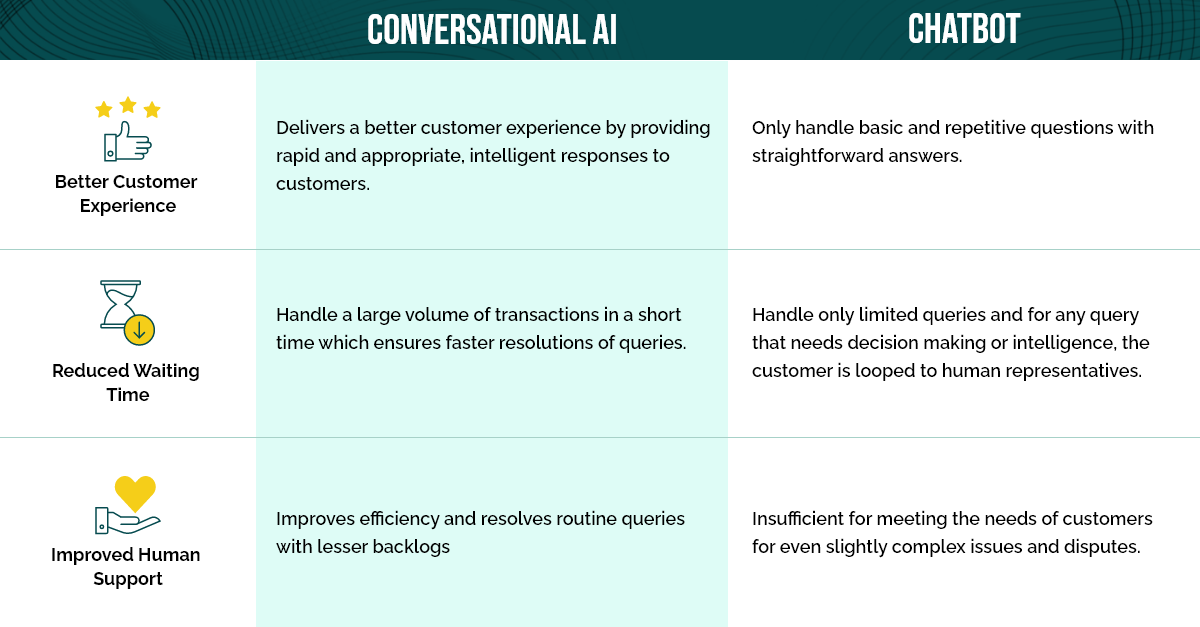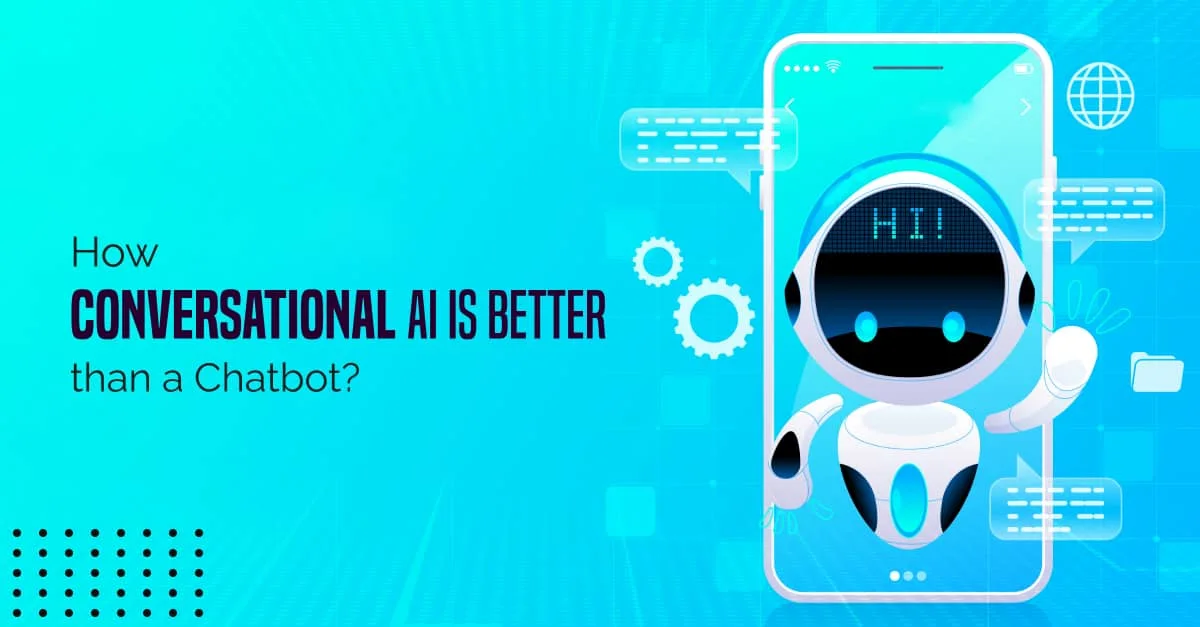What is a chatbot?
Chatbots may be defined as software systems that are tightly bound and governed by rules with well-defined categories that automate human interactions, limited to a small set of tasks. They are designed to typically follow rule-based and scripted conversations, based on keywords. They are uncomplicated to build and follow some predefined stream. Most importantly, chatbots are best suited for systems that are menu-based where customers can be asked to choose specific responses so that they can be provided with pre-written answers, for instance, FAQs or other similar requests for fetching information. Chatbots are simple and affordable solutions and a great help to customer service teams that need to answer a large volume of customer queries that have standard template-based answers.
What is Conversational AI
With progress in technology, it is now possible to create conversational virtual agents that can provide transactional messaging experiences. Conversational AI, to put it simply, is a form of AI that enables users to communicate with messaging apps, websites, voice assistants, and devices in conversational language via audio, text, and video. It is omnichannel and can be accessed and used through various platforms. Some examples from our daily lives include Cortana, Google Home, Siri, and Amazon Alexa as well as virtual call center agents. Conversational AI platform is based on a combination of Machine Learning (ML), Deep Learning, Natural language processing (NLP), Natural language Understanding (NLU), and predictive analytics and therefore constantly improves itself and learn while conversing with users. They can perform decision-making tasks akin to humans and provide a human touch with their ability to be flexible and also move from one topic to another just like human conversations.
Conversational AI vs Chatbots

In order to meet the requirements of larger organizations like financial institutions, insurance and telecommunications, and healthcare, chatbots need artificial intelligence to enhance their ability to understand human language and perform more complex tasks and transactions. Therefore, companies are shifting to Conversational AI platforms.
- Conversational AI delivers better customer experience – By providing rapid and appropriate, intelligent responses to customers with minimal friction makes Conversational AI give a better experience to customers. Chatbots, on the other hand, can only handle basic and repetitive questions with straightforward answers.
- Reduced waiting times – Conversational AI can handle a large volume of transactions in a short time which ensures faster resolutions of queries, shorter wait times, and overall better satisfaction for customers. Chatbots can handle only limited queries and for any query that needs decision making or intelligence, the customer is looped to human representatives. This makes waiting times longer for customers.
- Improved human support – As conversational AI improves efficiency and resolves routine queries, there are lesser backlogs, and human customer service agents have better bandwidth to resolve more complex issues and disputes. This helps provide greater human support to customers. Since chatbots are insufficient for meeting the needs of customers for even slightly complex issues and disputes, humans have to regularly intervene to resolve them.
- Implementation – In terms of ease of implementation, chatbots score over conversational AI as they are relatively less complex and based on simple technology such that a single user can follow a few guided steps to install and use them on behalf of companies.
Summary
Venture7 recommends that companies adopt the two technologies as complementary and utilize them in combination for better customer engagement and customer experience. Human agents can be used much later in the escalation matrix of customer service to handle the most complex of issues and disputes.





